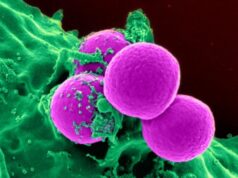A study of families with rare blood sugar conditions has revealed a new gene thought to be critical in the regulation of insulin, the key hormone in diabetes.
The research carried out at Queen Mary University of London, University of Exeter and Vanderbilt University, and published in the journal PNAS, could lead to the development of novel treatments for both rare and common forms of diabetes.
In addition to the more common forms of diabetes (type 1 or type 2), in about 1-2 per cent of cases diabetes is due to a genetic disorder. A defective gene typically affects the function of insulin-producing cells in the pancreas, known as beta cells.
The research team studied the unique case of a family where several individuals suffer from diabetes, while other family members had developed insulin-producing tumours in their pancreas. These tumours, known as insulinomas, typically cause low blood sugar levels, in contrast to diabetes which leads to high blood sugar levels.
Lead author Professor Márta Korbonits said: “We were initially surprised about the association of two apparently contrasting conditions within the same families – diabetes which is associated with high blood sugar and insulinomas associated with low blood sugar. Our research shows that, surprisingly, the same gene defect can impact the insulin-producing beta cells of the pancreas to lead to these two opposing medical conditions.”
Find your dream job in the space industry. Check our Space Job Board »
The team also observed that males were more prone to developing diabetes, while insulinomas were more commonly found in females, but the reasons behind this difference are as yet unknown.
Professor Korbonits added: “One exciting avenue to explore will be seeing if we can use this finding to uncover new ways to help regenerate beta cells and treat the more common forms of diabetes.”
The researchers identified a genetic disorder in a gene called MAFA, which controls the production of insulin in beta cells. Unexpectedly, this gene defect was present in both the family members with diabetes and those with insulinomas, and was also identified in a second, unrelated family with the same unusual dual picture.
This is the first time a defect in this gene has been linked with a disease. The resultant mutant protein was found to be abnormally stable, having a longer life in the cell, and therefore significantly more abundant in the beta cells than its normal version.
Dr Donato Iacovazzo, the first author of the paper added: “We believe this gene defect is critical in the development of the disease and we are now performing further studies to determine how this defect can, on the one hand, impair the production of insulin to cause diabetes, and on the other, cause insulinomas.”
Faye Riley is Research Communications Officer at Diabetes UK. She said: “At Diabetes UK, we’re committed to understanding more about the causes of all types of diabetes. This research gives us important insights into the impact a change in this particular gene has on insulin-producing beta cells and how this relates to the development of a rare genetic form of diabetes. It’s also a great example of how studying rarer conditions could help us learn more about more common types of diabetes.”
Provided by:
Queen Mary, University of London
More information:
Donato Iacovazzo el al., “MAFA missense mutation causes familial insulinomatosis and diabetes mellitus,” PNAS (2018). www.pnas.org/cgi/doi/10.1073/pnas.1712262115
Image credit:
CC0 Public Domain











